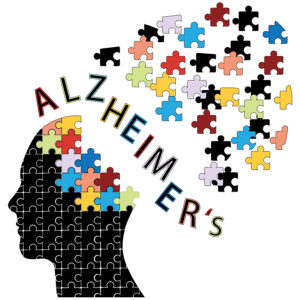How to Address Nutrition for Alzheimer’s Patients at Home
Alzheimer’s disease is a progressive disease that affects how the brain functions. It impacts memory, behavior, and the ability to think and to reason. For many Alzheimer’s patients, eating the right foods could make a big difference in overall health, but it’s difficult to tackle that task on their own. Alzheimer’s care providers can help with those details.
Alzheimer’s Patients Need a Balanced Diet

Alzheimer’s Care Morris County NJ – How to Address Nutrition for Alzheimer’s Patients at Home
Every senior needs to be eating a healthy and balanced diet, of course, but it’s especially important for people who have Alzheimer’s disease to have the nutrients they need. It’s always a good idea to talk with the patient’s doctor about details, but generally speaking, lean proteins, healthy fats, fruits, vegetables, and whole grains all need to make an appearance in daily meals. Foods that support brain health, like foods that are high in antioxidants and foods that are anti-inflammatory can be especially helpful for people with Alzheimer’s disease.
Sensory Factors Are Important with Food and Alzheimer’s Patients
Many patients with Alzheimer’s disease have a great many sensory needs that may not have been as much of a problem before they experienced cognitive changes. That means that there might be some foods that have a texture that an Alzheimer’s patient cannot tolerate any longer. Some Alzheimer’s patients have trouble swallowing or chewing, so it might be important to focus on foods that are easy to eat. Alzheimer’s care providers can help to spot potential issues with texture and other sensory issues.
Medication Side Effects Can Be a Factor in Nutrition
It can be so difficult for people with Alzheimer’s disease to share with family caregivers how they’re feeling or what is going on. Sometimes Alzheimer’s patients may be taking medications that cause nausea or affect appetite or digestion in other ways, and family caregivers may not know at all. It’s important to talk to the patient’s doctor about what the possible side effects might be and how to mitigate them.
Older Adults Can Develop Food Allergies
Besides dietary restrictions recommended by a doctor, there are other concerns when planning out nutritious meals. Older adults can very easily develop food allergies later in life. They may have never had trouble with certain foods in the past, then suddenly find that they’ve developed reactions to them. For Alzheimer’s patients, this can be a scary situation. Alzheimer’s care providers are skilled in helping family caregivers recognize when something might need closer attention.
Alzheimer’s Care Aides Monitor Social and Emotional Factors
Alzheimer’s patients can seem as if they don’t know that family members are there with them, but that isn’t necessarily the case. And having people there with them while eating can help make mealtimes easier. People with Alzheimer’s disease often experience anxiety, loneliness, and isolation, especially during meals. Having companionship during meals, from home care providers or family members, can offer the connection and socialization that Alzheimer’s patients need in order to feel secure.
Hire Alzheimer’s Care Providers
Nutrition is vital for any health issue, but especially for Alzheimer’s disease. When Alzheimer’s patients get the nutritious meals they need, they support cognitive function, moods, sleep, and overall well-being. Alzheimer’s care providers can help to make sure that patients get the assistance they need to eat healthy meals regularly.
If you or an aging loved one are considering hiring professional Alzheimer’s Care Services in Morris County NJ, please talk to the caring staff at Generations Home Health Care today. Providing Home Care in Somerset, Essex, Union, Morris, and Hunterdon Counties. Call us today at (908) 290-0691 or (973) 241-4534.
- How To Help Prevent Your Senior Parent From Falling In The Shower - May 8, 2025
- Reliable, Cheerful, and Professional Care—Even on My Schedule - April 24, 2025
- How Can Seniors Break Free from Hoarding Behaviors? - April 23, 2025


